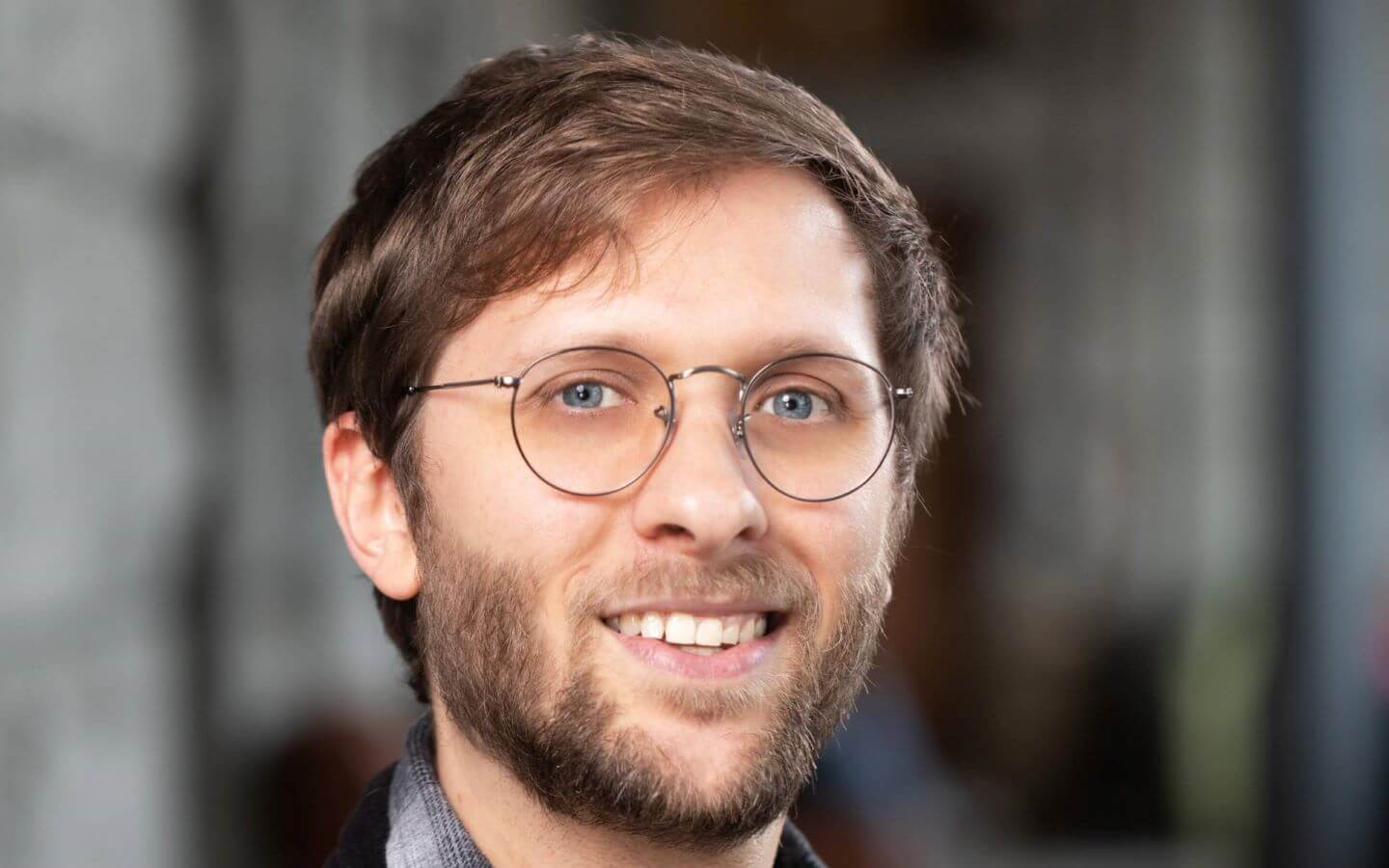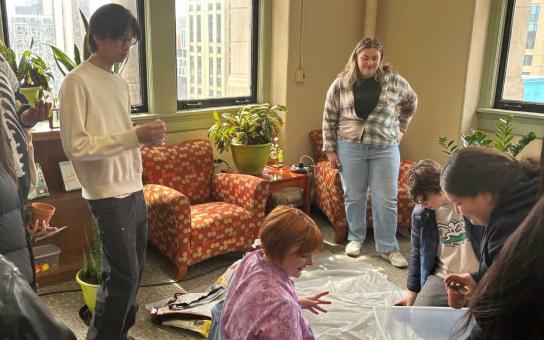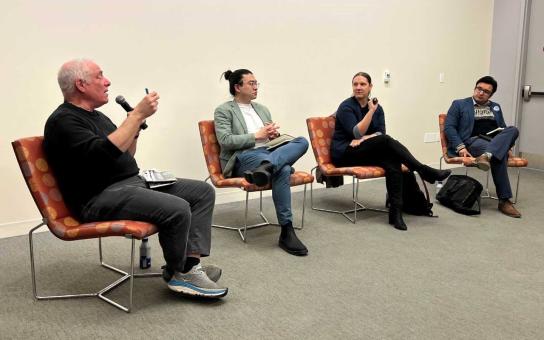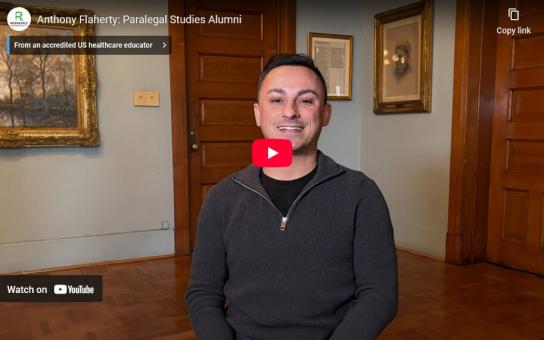
The Roosevelt community is full of dedicated educators who continue to innovate with the courses they offer and their teaching styles. One of those professors is Dr. Michael Blancato, who recently launched a pilot course called “Digital Storytelling.” In this class, students learn about the emerging mediums of video essays and podcasting, looking at their histories, and revealing how to use them effectively. The course culminates in the production of student-crafted projects they can add to their individual portfolios. Students are also gaining skills in video and sound editing while sharpening the skills of composition and effective communication, all of which make them standout candidates in the job market post-graduation. He recently co-authored an article with Ohio State PhD Candidate Natalie Kopp about how video essays can help students become better writers for the Chronicle of Higher Education. While the course is incredibly instructive, Dr. Blancato wants to make one thing clear:
“I just want to say, from the get-go, that what we're going to be doing in this class is serious fun. That’s a phrase I heard from a professor when I was in school, and it stuck with me. That’s what I want students to know about this course. We’re taking people's ideas seriously, but we're having fun with it. We’re looking at YouTube videos and listening to podcasts, and we’re applying all that we’re learning about media literacy, but we’re also having fun while we’re doing it.”
The first students to take this course appear to agree. Students were able to share some of their favorite works from around the internet but discuss them within an academic context. Dr. Blancato continues, “We're really passionate about the work we’re doing. And so that's what I would say to anyone who's interested. If you're looking for a course that engages with new media, take digital storytelling. We're gonna have some serious fun.”
Fun is just one of Dr. Blancato’s many passions. He’s also currently teaching a class called, “Writing for Non-Profits,” where the class partners with local organizations and help develop materials for their campaigns. Education, civic engagement and joy are at the heart of Dr. Blancato’s work. He has been a faculty member at Roosevelt University’s College of Humanities, Education and Social Sciences since 2020. He is currently the Director of the Undergraduate Writing Program, as well as an Assistant Teaching Professor of English with a concentration on composition and rhetoric. He knew he wanted to become an educator from an early age. According to Dr. Blancato, “I had some really amazing teachers in high school, so I entered college knowing I wanted to be a teacher. I wanted to pay it forward.” He also feels a particular affinity for the students he gets to work with at Roosevelt. Dr. Blancato had this to say about how he relates to his students:
“I'm a first-generation college student, and that’s something I have in common with many Roosevelt students. I share this connection to the students who might be a little bit intimidated by being the first in their family to go to college and trying to figure out how to navigate these spaces and find the resources that they need to be successful. That was me in undergrad. I was in the same situation, and so I like being able to work with these students to help them achieve their goals.”
With his innovative course offerings and dedication to his students, Dr. Blancato is an invaluable member of the Roosevelt community. “Digital Storytelling” will be offered again in Spring 2025.


